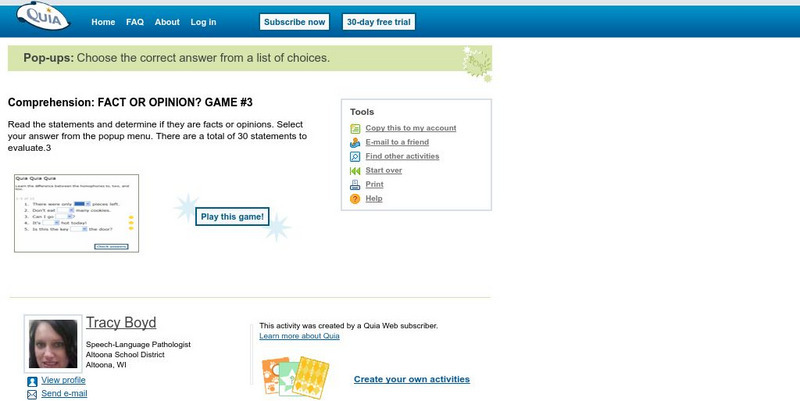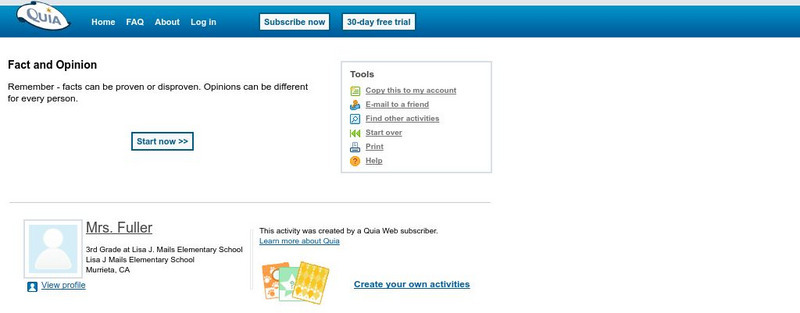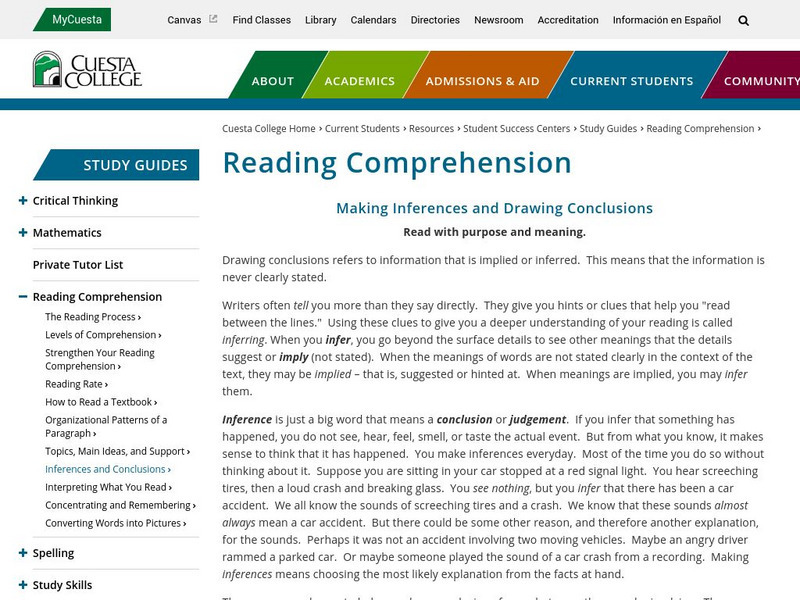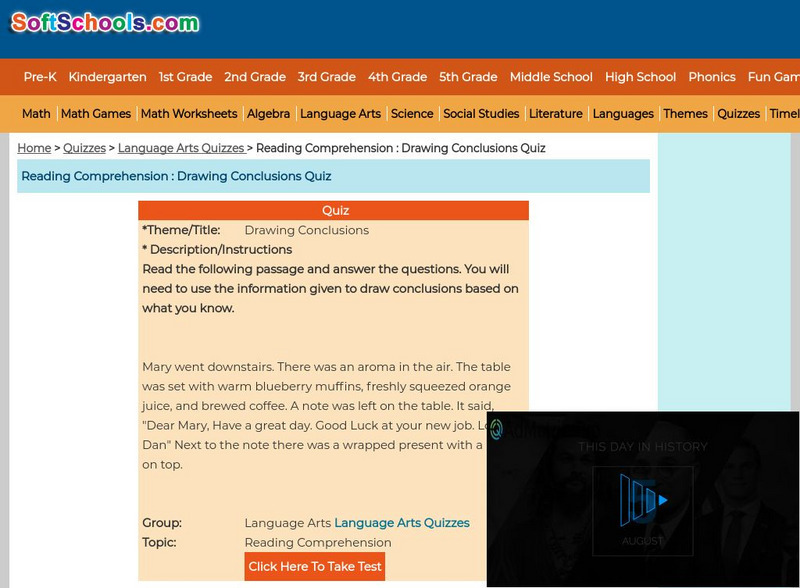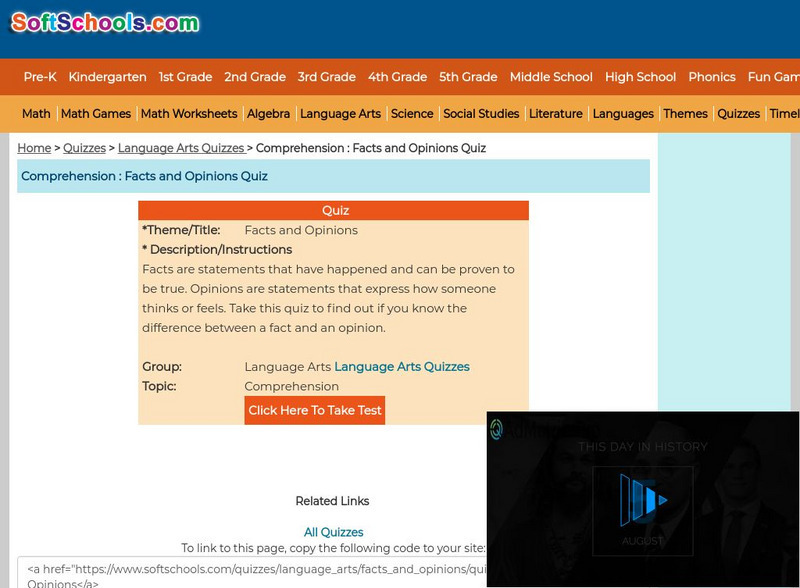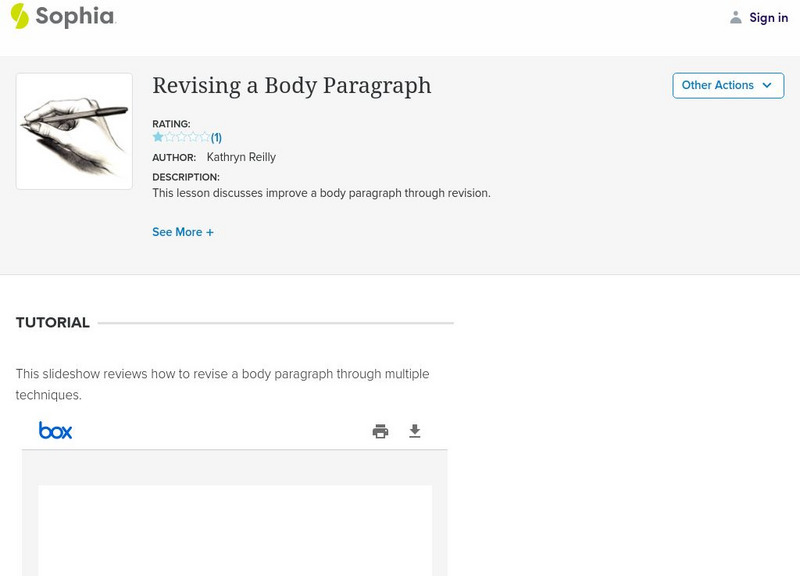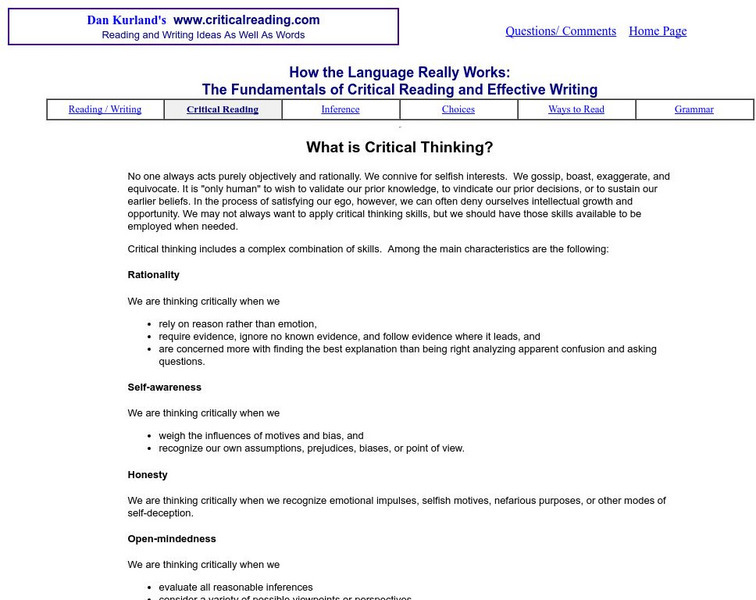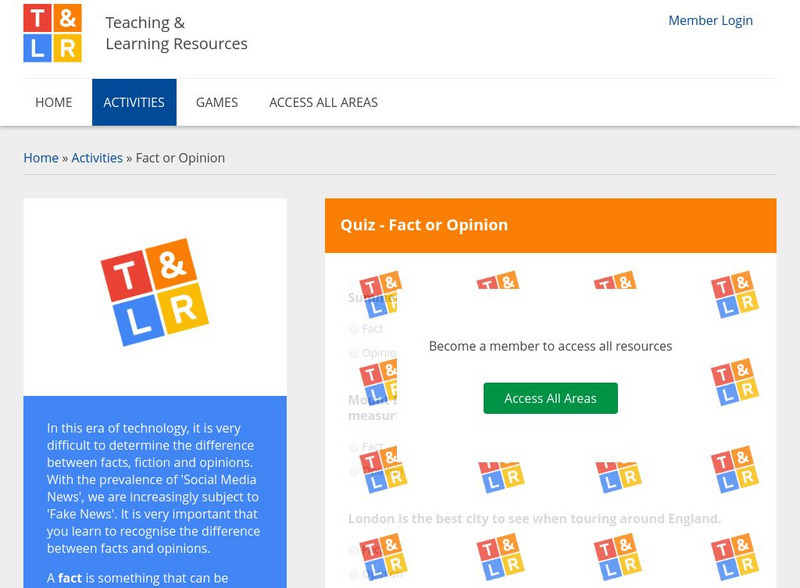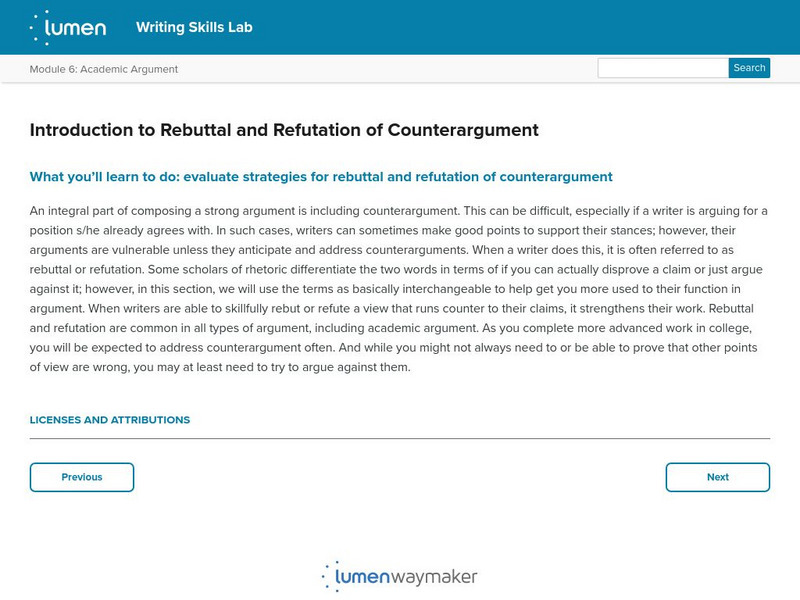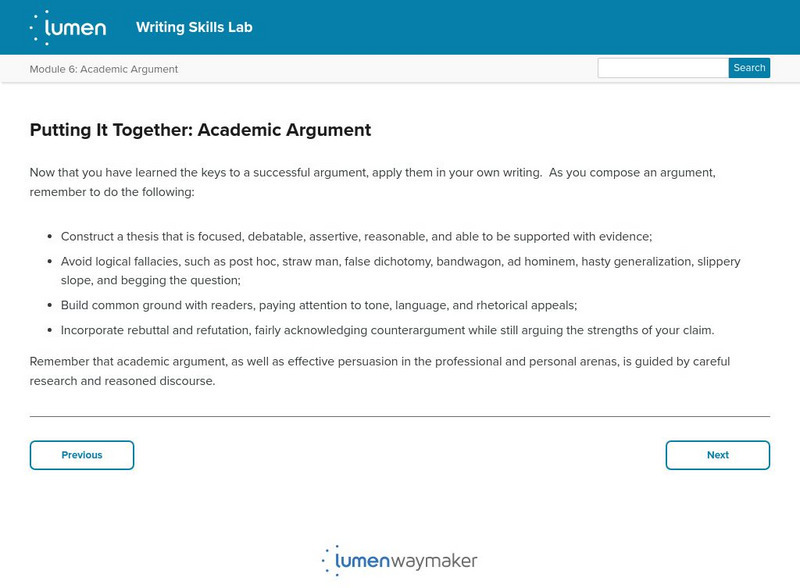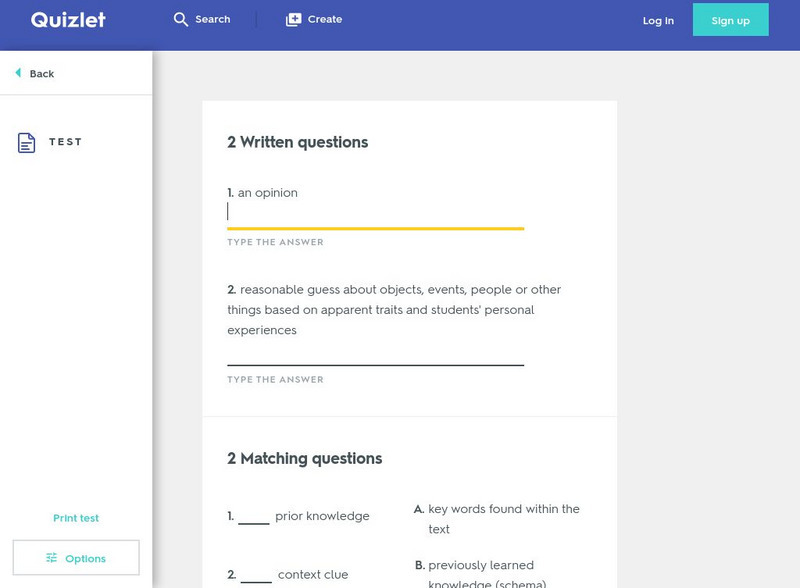Quia
Quia: 5th Grade Drawing Conclusions
Read a short text and then choose an appropriate inference or conclusion in this five-question quiz.
Quia
Quia: Comprehension: Fact or Opinion Game #3
Read each sentence and determine whether it is a fact or an opinion in this thirty-question quiz.
Quia
Quia: Fact and Opinion
Read each sentence and determine whether it is fact or opinion in this ten question quiz.
Other
Mesa Public Schools: Fact or Opinion
Discover the difference between a fact or opinion. Look for signal or keywords for help.
Other
Cuesta College: Reading Comprehension Guide: Inferences and Conclusions
Explanations and examples of inferences and conclusions in reading and in understanding context clues to define unknown vocabulary.
TES Global
Blendspace: Ethos, Logos, Pathos
A learning module with eight links to images, videos, charts, and assessments about ethos, logos, and pathos.
TES Global
Blendspace: Argument Writing: Homework
A learning module with links to eight websites to use while writing an argumentative essay on how beneficial homework is.
Other
Prezi: Fact and Opinion
Resource exams how one can tell the difference between fact and opinion.
Soft Schools
Soft Schools: Drawing Conclusions
Read a literary text paragraph and then answer questions that require the reader to draw conclusions from the text in this nine-question quiz.
Soft Schools
Soft Schools: Comprehension: Facts and Opinions Quiz
Determine whether each statement is fact or opinion in this ten-question quiz.
ClassFlow
Class Flow: Becoming an Effective Listener
[Free Registration/Login Required] This flipchart focuses on the traits of an effective listener and the identification of popular logical fallacies and propaganda techniques. In addition, there is an Activote at the end to check student...
ClassFlow
Class Flow: Fact or Opinion
[Free Registration/Login Required] Students will be introduced to the difference between facts and opinions. They will practice determining which statements are facts and which are opinions. Activities include sorting and classifying...
Sophia Learning
Sophia: Revising a Body Paragraph
This lesson discusses improve a body paragraph through revision.
Grammarly
Grammarly Handbook: Answering the Opposition in a Persuasive Essay
This page explains when and how to answer the opposing claims in a persuasive essay.
Other
Critical Reading: How the Language Really Works: What's Critical Thinking?
Reading and writing are essentially thinking. This site examines the aspects of critical thinking, including rationality, self-awareness, honesty, open-mindedness, discipline, and judgment. RI.11-12.10a Text Complexity
Other
Prezi: Explicit vs. Implicit
Slideshow explains the difference between explicit and implicit meaning in texts and visuals. Includes good examples and practice questions.
Other
Thinking Skills in Education: Comparing Four Frameworks
An interesting article that discusses various types of thinking skills and why they are important in education.
Other
Teaching and Learning Resources for Ks2 (Ages 7 12):literacy: Fact or Opinion?
This is a 10 question, self-scoring quiz on separating fact from opinion. Students read a sentence and select "fact" or "opinion" from the drop-down menu.
Lumen Learning
Lumen: Writing Skills: Introduction to Effective Paragraphs
This is an introduction to recognizing and evaluating effective paragraphs.
Lumen Learning
Lumen: Academic Argument: Logical Fallacies
This introduction defines logical fallacies and lists reasons to avoid them. Click next at the bottom of each page for more information about fallacies.
Lumen Learning
Lumen: Writing Skills:introduction to Rebuttal and Refutation of Counterargument
This is an introduction to rebutting and refuting counterarguments. Click the next button on the bottom right for more information about the counterargument.
Lumen Learning
Lumen: Writing Skills: Putting It Together: Academic Argument
This is a summary of the academic argument learning objectives including constructing a debatable thesis statement, avoiding logical fallacies, building common ground with readers, and incorporating rebuttal and refutation.
Other
Cuesta College: Interpreting What You Read
This site from Cuesta College provides both in-depth definitions of fact and opinion, and several clear examples of each.
Quizlet
Quizlet: 4th Grade Unit 2 Reading: Inference: Test
This interactive assessment features 6 multiple-choice over terms having to do with making inferences and their definitions. These terms include the following: inference, context clue, judgment, implied, prior knowledge, and apparent...

